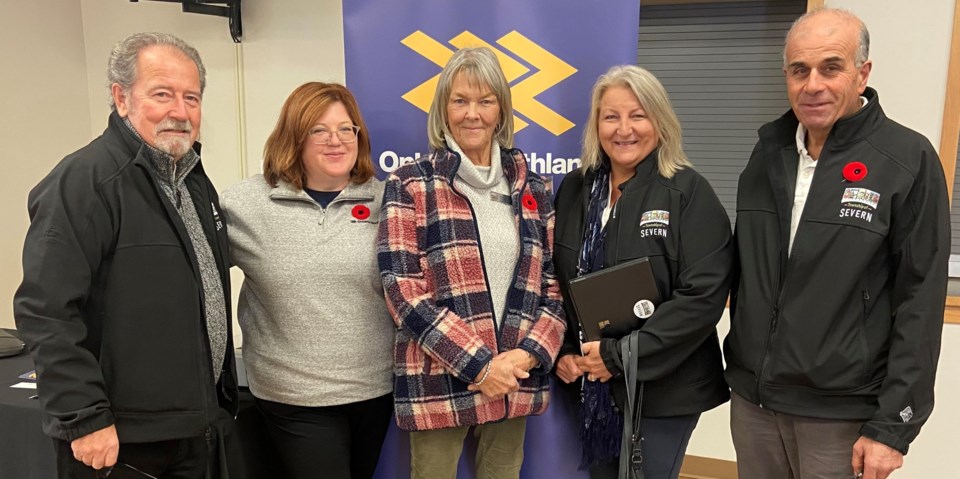BarrieToday welcomes letters to the editor at [email protected] or via the website. Please include your full name, daytime phone number and address (for verification of authorship, not publication).
Will the government of Ontario restore the Northlander passenger train by the mid 2020s — no strings attached?
Have the feds given Via Rail sufficient resources to provide a consistent standard of service in northern Ontario?
It depends who you ask.
Both Ontario Northland (ONR) and Via have recently made national news with their announcements.
The ONR held information sessions to gather feedback from residents and travellers in 13 communities (including Washago) it intends to serve with the new Northlander. The company will also begin providing onboard Wi-Fi to passengers on its sister train, the Polar Bear Express.
For its part, Via is renovating a handful of stations and revising its baggage policy.
Let’s examine some of these developments.
Gathering input
I’m never sure what to expect from government-run consultations.
During the flawed think tanks of the northern Ontario multimodal transportation strategy, I remember vividly passenger rail being excluded from the discussion.
What staff at Ontario Northland ultimately put together is a step in the right direction.
Among other things, they sought input on the destinations people need to get to. They asked for suggestions of meals passengers would purchase on board the train.
The ONR went so far as providing samples of the seating material and carpeting to be found inside the new train sets.
At a minimum, there will be heated shelters and accessible platforms in each city and town the Northlander makes stops at.
Local transit providers will make connections from communities not situated on the rail line to the nearest station.
It’s unclear how much collected data will be used in the planning process.
There are also a number of unanswered questions:
- in-service dates
- frequency
- on-time performance
- track-use agreements
- funding models
- scalability
Nevertheless, credit where credit is due.
Northern indifference
Whereas the province is making some strides to resolve the region’s transportation hardships, Ottawa appears all but determined to accelerate them.
How else does one explain both the Trudeau and Harper governments’ decisions to neglect, or outright close, waiting facilities that are otherwise afforded to federally funded rail services?
Twenty-five million taxpayer dollars will be spent to renovate London’s Via Rail depot and $80 million more to restore historic stations in Halifax, Quebec City, Vancouver and Winnipeg.
Several years ago, Via reopened its Rivers, Man., facility.
Conversely, there are but four heated station-shelters open to the public between Toronto and Winnipeg.
The most utilized — Sudbury Junction — is located at the edge of town between a forest and an industrial park.
There’s no public transit or shuttle to connect passengers to Via’s other Sudbury station downtown.
Interestingly, the company supplies one for travellers disembarking the Ocean Train at Sainte-Foy to get to downtown Quebec City.
Via’s apathy for northern Ontario runs so deep that officials said Longlac station was “no longer required” and “passengers will have to wait outside” even though the Canadian is often very late. It couldn’t even be bothered to provide bilingual signage.
The official Opposition in Parliament has noticed gaps elsewhere in the north.
Bureaucratic oversights
On top of closed railway stations and service cuts, Via reduced its carry-on baggage allowance system-wide.
Economy-class fares previously included one small bag, plus one large suitcase, or two smaller ones. Remote service train passengers could also store two additional items in the baggage car.
Today, checked baggage costs $25 per item, per direction, per train.
Furthermore, Via no longer sells warm meals to economy passengers on the Canadian like it did before and during the pandemic.
On a good day, the train takes 33 hours to traverse 1,800 kilometres through mostly rural northern Ontario.
That’s a tad long for perishables stored in a cooler — which now costs extra to bring. Yet there’s seldom enough time to buy anything prepared at a local business during only one of three rest stops: Capreol, Hornepayne or Sioux Lookout.
These policy changes epitomize what’s wrong with passenger rail in Canada. Decisions are too often made without any public feedback. Remember the Algoma Central cancellation?
You’re not an airline, Via.
If the province and ONR can provide meals and Wi-Fi aboard its trains, shuttle services and secure shelters for its smallest communities, why can’t the feds and Via offer northern travellers the same things?
Transport Minister Pablo Rodriguez, what’s so complex about easy-to-use, frequent, comfortable, reliable and affordable public transit?
Éric Boutilier
Columnist, Northern Tracks



